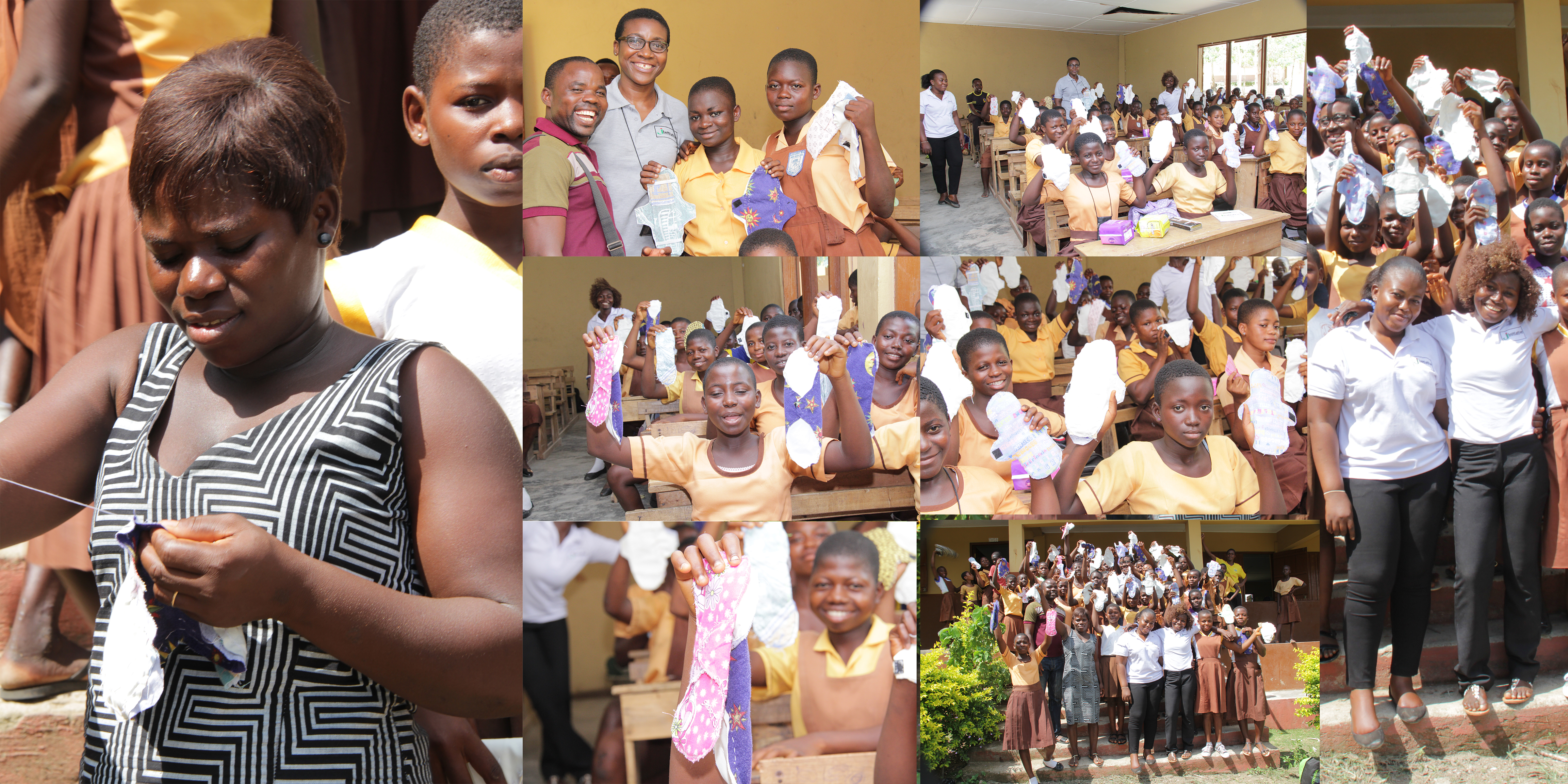One of the goals in global development remains unhindered access to and completion of primary and secondary education for all children.
This right, for many young girls in parts of Africa in general and in Ghana specifically, has become a rare privilege, particularly for those living in the cities’ outback due to challenges arising from menstruation and menstrual hygiene management.
UNICEF estimates that one in every ten girls on the continent misses days in school during menstruation or drops out entirely because of a lack of appropriate facilities to manage their female cycles. In Ghana, the situation is more devastating with several girls in rural communities unable to properly manage their period, leaving school enrollment and attendance heavily affected.
As Ghana joins the rest of the world to celebrate the social, economic, cultural, and political achievements of women on International Women’s Day, the Happy School Girl Project (HSGP), under the umbrella of J Initiative, is strongly advocating for better menstrual hygiene management for girls in Ghana, especially in our schools.
The HSGP is promoting suitable ways in which girls can cope with their monthly flow with respect to how they obtain, use, and dispose of sanitary materials, without having them feel undignified.
On this day, the HSGP calls for the prioritization of various empowerment tools that provide menstrual hygiene management education to individuals and schools.
A girl in Ghana begins to menstruate at age fifteen and continues to menstruate monthly until she’s fifty, leaving the average female with thirty-five reproductive years. It should be noted that if the period lasts five days for every cycle and she uses five disposable towels each day, then, cumulatively, one woman can use ten thousand five hundred or more disposable towels in her lifetime.
While we continue to promote appropriate menstrual hygiene for our teen girls in school, J Initiative is also pursuing the use of environmentally friendly options. These include the provision and use of reusable menstrual pads—proven to be sustainable, cost-effective, and safe alternatives, as long as there is availability of soap, clean water, and safe drying space for these pads.
As we mark International Women’s Day 2017 under the theme, ‘Women in the Changing World of Work: Planet 30:50 by 2030’, we call on the Ministry of Education to incorporate proper menstrual hygiene management in public schools by:
- Committing to and scaling up the provision of feminine products.
- Building private and adequate hygiene facilities for girls, which will facilitate their equal access to resources in society.
- Equipping these facilities and all schools with soap, sanitary pads, medication for pain during menstruation, and staff training to be able to deal with these situations.
- Providing honest age-appropriate and comprehensive sexual and reproductive health to young girls and boys as early as the age of nine, to assist boys to empathize with their female classmates.
- Leading and supporting public awareness endeavors that target negative myths and misconceptions associated with menstruation.
We also take the occasion to appeal to social bodies and religious leaders as well as all boys and men to take it upon themselves to make girls feel a lot more comfortable during their periods by removing the stigma associated with menstruation in family and other social settings.
Male teachers must understand these issues and make provisions to allow menstruating girls to visit washrooms to clean up as needed.
We hope these provide a head start for a paradigm shift to make the Ghanaian School Girl Happy enough to stay in school, especially those living in rural areas, in line with the Ghanaian-adopted theme for this year’s celebration: ‘Economic Empowerment of Rural Women: A Tool for Sustainable Development in a Changing World of Work.”
Author: J Initiative



